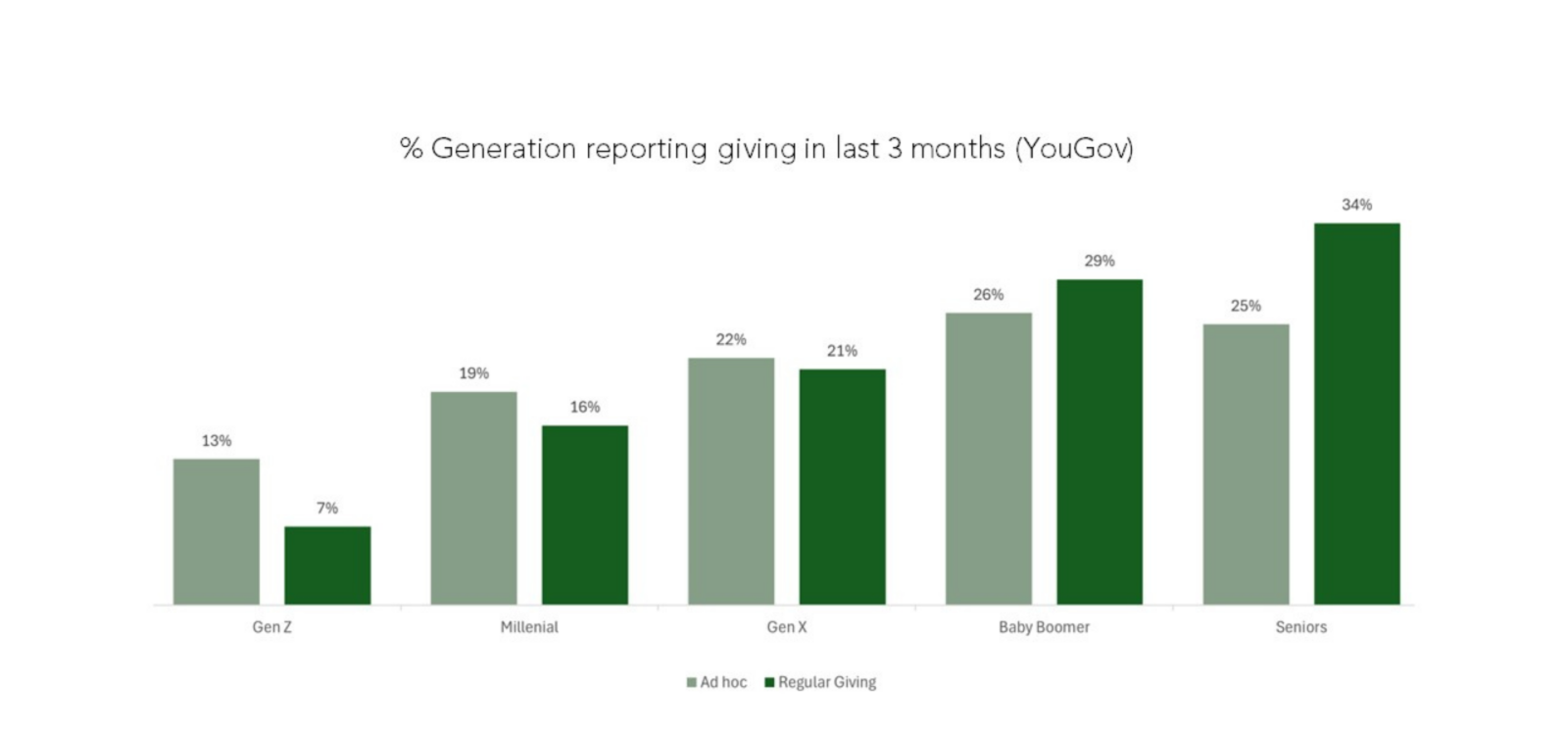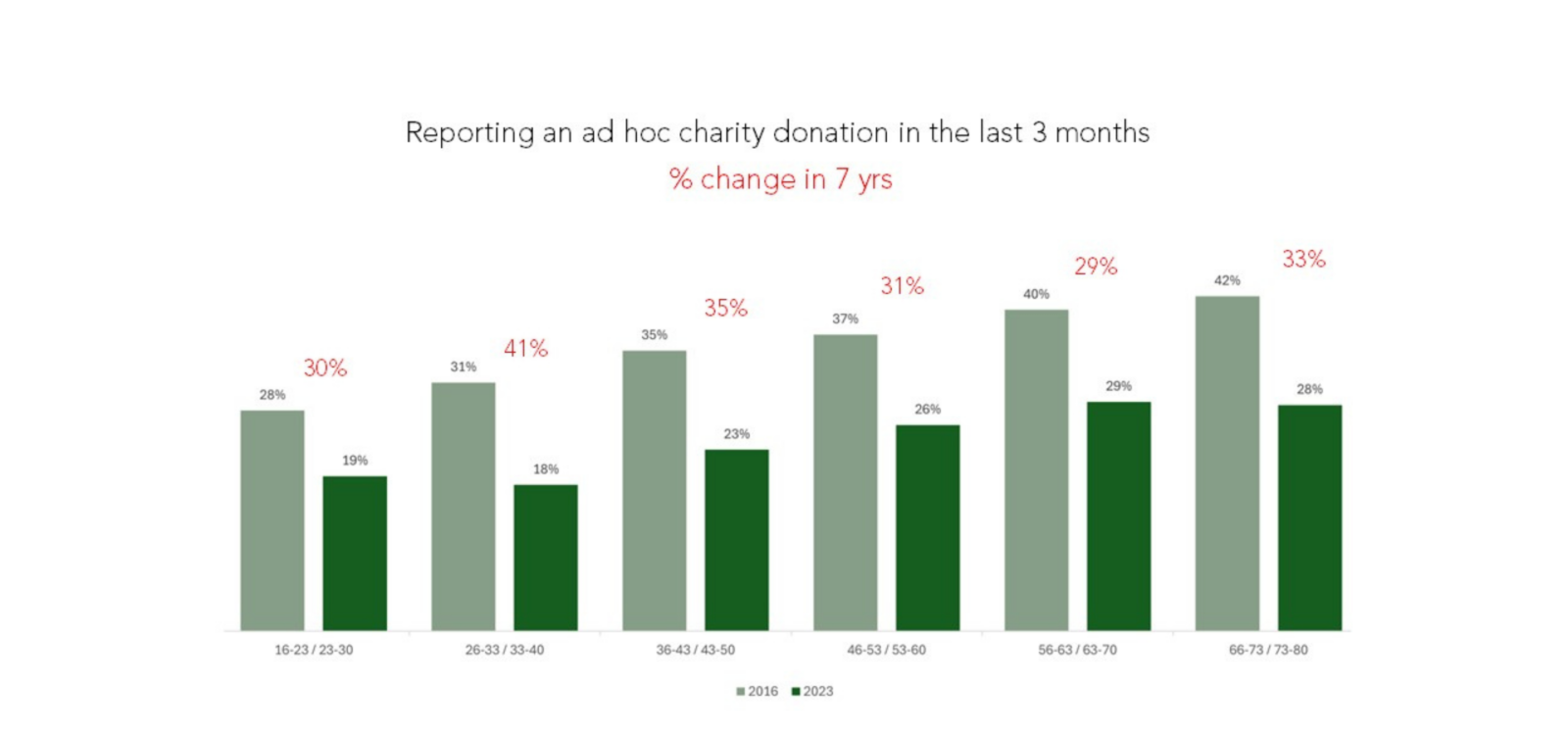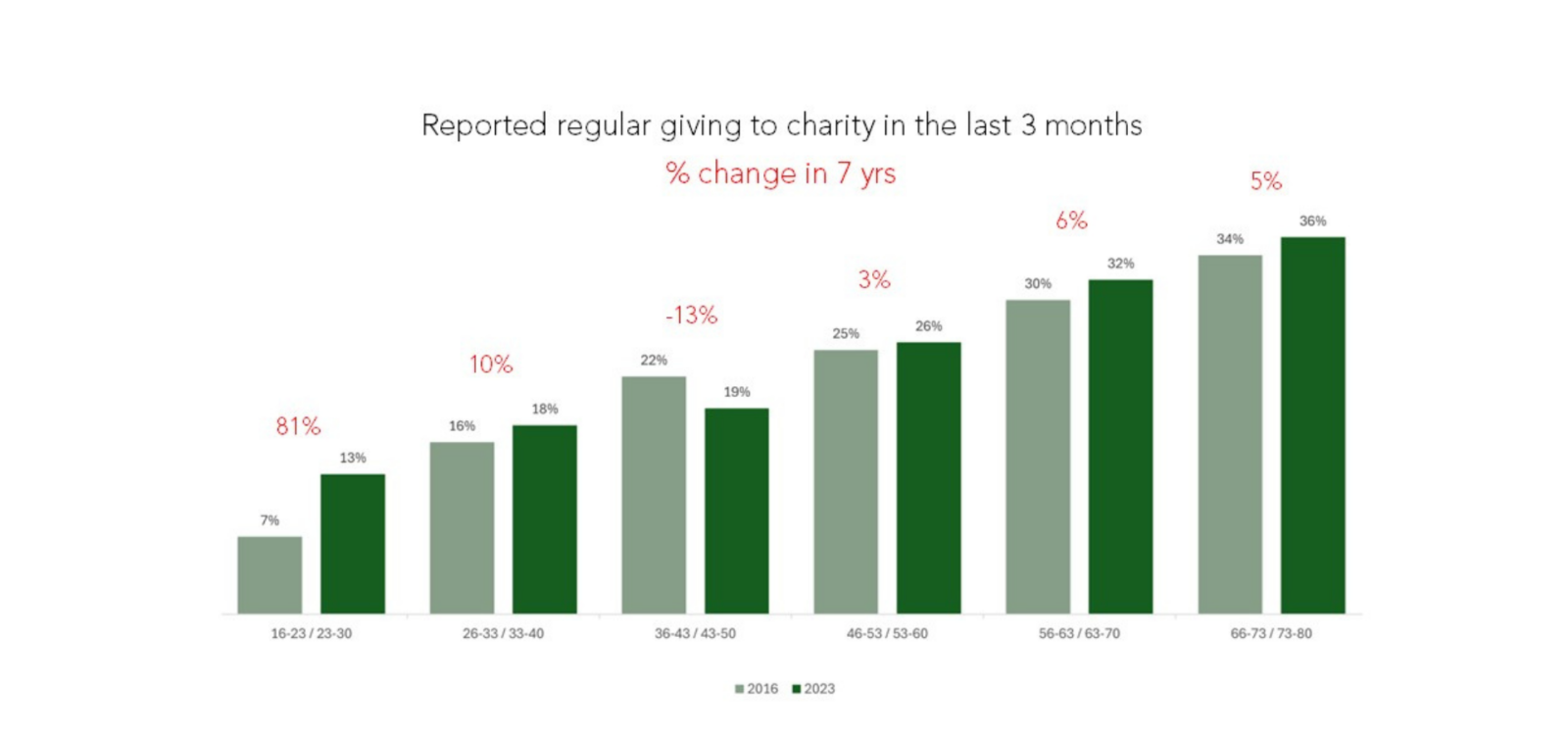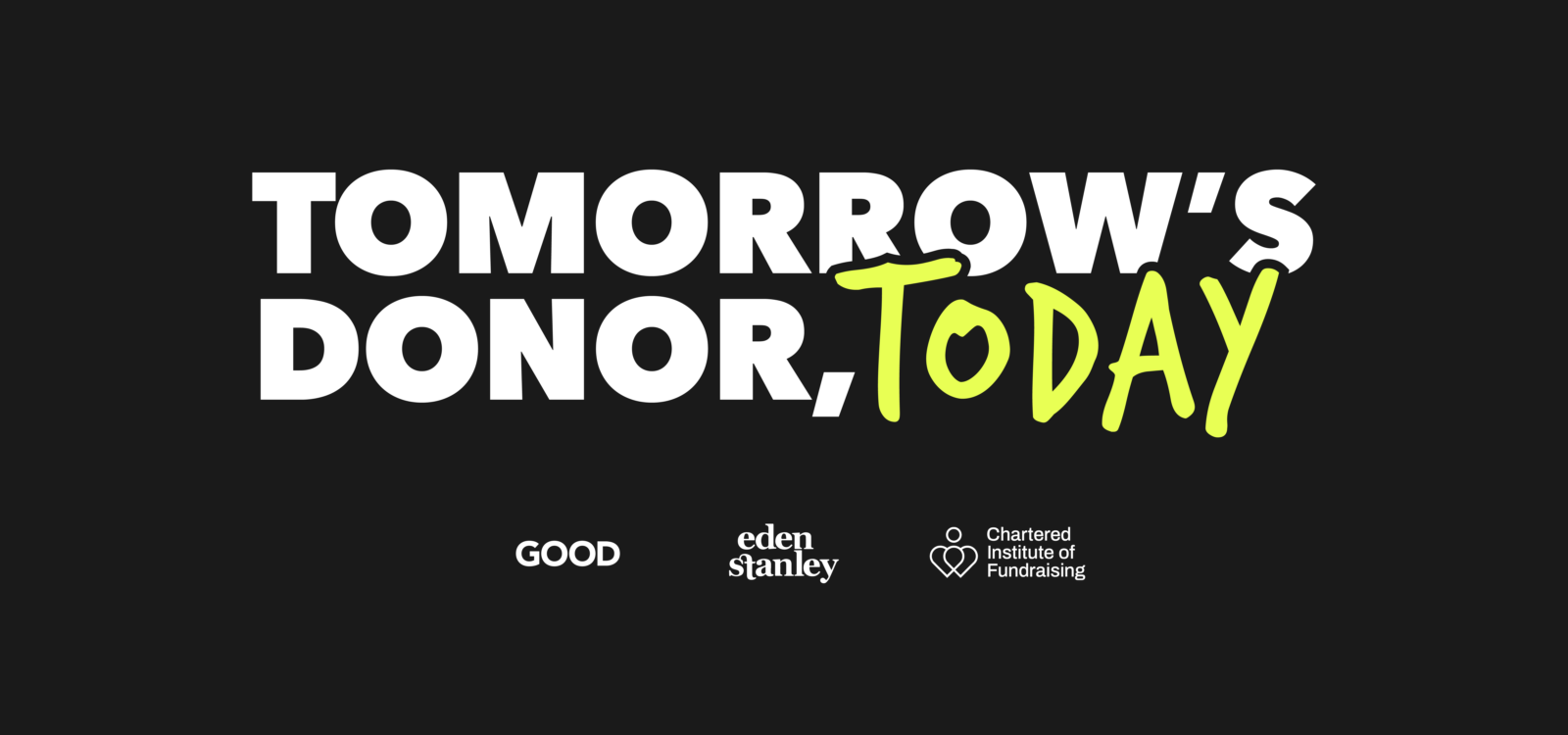
Will younger generations start giving as they age?
In December 2023, we released our Tomorrow’s Donor report, a deep dive into the next generations’ (18-50 year olds) attitudes to giving. This mission was in response to clear data (below) that shows the younger you are, the less likely you are to report giving.
Pete Esuola-Grant, GOOD’s Head of Planning, dives deeper into the data and explains why we shouldn’t rest on the assumption that younger generations will inevitably give as they get older

Investigating the assumptions
A common assumption is that whilst reported giving is low now, younger generations are bound to build relationships and start giving to charities as they get older and become more established. In fact, many charities are banking on this for their future financial security.
We set out to investigate whether younger generations really are increasing their giving as they age, using historical data from YouGov Profiles, the nation’s largest and most cited nationally representative panel of the GB population.
What does the data say?
We compared data across a seven year period, from November 2016 to November 2023. We compared the same age cohorts as they aged. I.e. we compared 16-23 year olds in 2016 with their future selves aged 23-30 in 2023.
The data shows we shouldn’t rest on the assumption that younger generations will inevitably give as they get older.
The decline in giving
Rather than increasing their ad hoc giving with age, there was actually a decline in the number of people giving one off gifts in every age group. The older Millennial cohort who are currently 33-40 years old actually reduced their ad hoc giving the fastest of any age group.

Regular giving resilience, apart from in Gen X
Self-reported regular giving was a lot more resilient, with slight increases in all age groups, apart from in the Gen X age group currently 43-50 who have decreased their regular giving over the last seven years. However, changes in regular giving among younger generations are only incremental and far off the growth rates needed for young generations to replenish the regular giving pipeline.

Younger generations aren’t becoming their parents
We would caution charities from assuming that younger generations will go on to give as their parents and grandparents did. If they give, it certainly won’t be in the same pattern, the same channels or to the same stories that resonated with older generations.
In fact, younger generations are consistently bucking assumptions across the board. Research has found that British and US Millennials are both bucking the long-established trend of becoming more conservative as you get older, and are in fact the least conservative 30-somethings in recorded social history.
They are also reconsidering social expectations to have children and own property.
Securing future relevance
The key to charities securing support from younger generations is relevance. The Charity Commission’s annual tracker has shown that, whilst trust in charities is generally high, relevance has eroded after the last decade, with far fewer people believing charities play an important role in society.
Our “Tomorrow’s Donor” report delved deep into the attitudes to charity of younger generations. In a nutshell, they saw charities as fundamentally good but old fashioned, irrelevant in their lives and quite invisible – with many not being able to report any sightings of charities across a ten day period.
Download the Tomorrow’s Donor Report
We created an online community of altruistic 18-50s an gathered rich insight into their understanding of doing good. We’ve highlighted five macro trends that charities could tap into to secure future relevance with younger generations.
Register to receive the report



